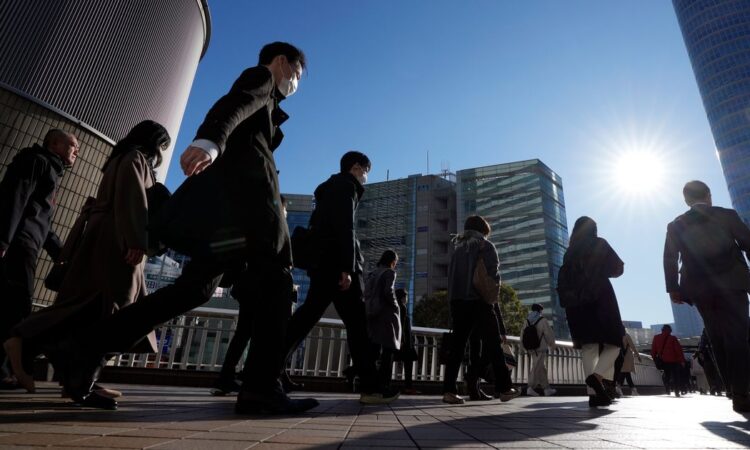
The bank has an inflation target of 2% that it used as a benchmark for whether Japan had finally escaped deflationary tendencies
Japan’s central bank raised its benchmark interest rate on Tuesday for the first time in 17 years, ending a longstanding policy of negative rates meant to boost the economy.
The Bank of Japan’s lending rate for overnight borrowing by banks was raised to a range of 0 to 0.1% from minus 0.1% at a policy meeting that confirmed expectations of a shift away from ultra-lax monetary policy. It was the first rate hike since February 2007.
The negative interest rate policy, combined with other measures to inject money into the economy and keep borrowing costs low, “have fulfilled their roles,” said Kazuo Ueda, the governor of the Bank of Japan. The bank has an inflation target of 2% that it used as a benchmark for whether Japan had finally escaped deflationary tendencies.
But it had remained cautious about “normalizing” monetary policy, or ending negative borrowing rates, even after data showed inflation at about that rate in recent months. Ueda said there was “a positive cycle” of a gradual rise of wages and prices, while stressing that monetary policy will remain easy for some time.
Although private sector banks and other financial organizations will make their own decisions about rates, he said did not foresee any drastic rises. The central bank will watch for any big moves in rates, which would cause confusion, he added.
“We made the decision because we foresaw stable and continuous 2% inflation,” he added. Another factor supporting the shift: Japanese companies have announced relatively robust wage hikes for this year’s round of negotiations with trade unions.
Wages and profits at companies were improving, the Bank of Japan said, in releasing its latest decision, referring to “anecdotal” accounts as well as data it had gathered lately. “Japan’s economy has recovered moderately,” it said. Market reaction was muted as the decision had been anticipated.
Tokyo’s benchmark Nikkei 225 index gained nearly 0.7% on Tuesday. Analysts said the bank likely won’t rush to change its overall easy lending framework and will closely monitor prices. Harumi Taguchi, principal economist at S&P Global Market Intelligence, said she believes inflation could begin falling below 2% and wage increases may not necessarily lead to robust consumer spending if people choose to save, rather than spend.
“While the bank’s decisions will contribute to improving the functioning of financial markets, the impact on the real economy is likely to be limited,” according to analysis by S&P Global Market Intelligence. Ueda had repeatedly said the central bank would review its negative rate and other easing measures if the 2 percent inflation target was met and was accompanied by wage increases.
The Japanese central bank’s policy is quite different from those of the U.S. Federal Reserve and the European Central Bank. Both have been moving to lower interest rates after rapidly raising them to clamp down on inflation. The Bank of Japan has kept borrowing costs extremely low for many years to encourage Japanese consumers and businesses to spend and invest to help sustain stronger economic growth.
Japan recently became the world’s fourth biggest economy, slipping behind Germany in terms of its nominal gross domestic product, or GDP. The U.S. economy is the largest, followed by China, which overtook Japan over a decade ago.
BOJ officials say they want to make sure inflation is based on domestic factors that can sustain higher wages, not external ones. Analysts expect the Bank of Japan to continue to move slowly on further raising interest rates. The Bank of Japan said in its assessment of the economy that the current recovery was based partly on a “materialization of pent-up demand” even as global demand has weakened.
But it noted that industrial production was stagnant, partly due to cutbacks by automakers. Housing investment was relatively weak and government spending was “more or less flat.” Ueda characterized the situation as “less than perfect.”
“Concerning risks to the outlook, there are extremely high uncertainties surrounding Japan’s economic activity and prices,” the Bank of Japan said.





